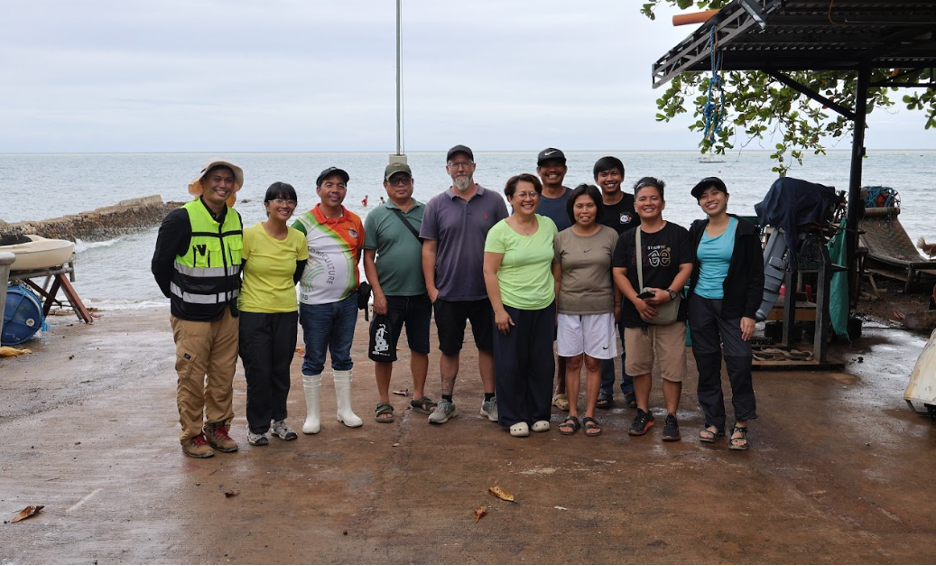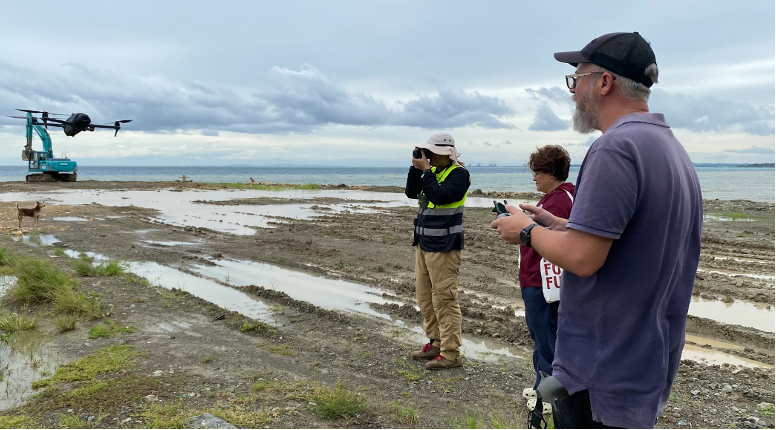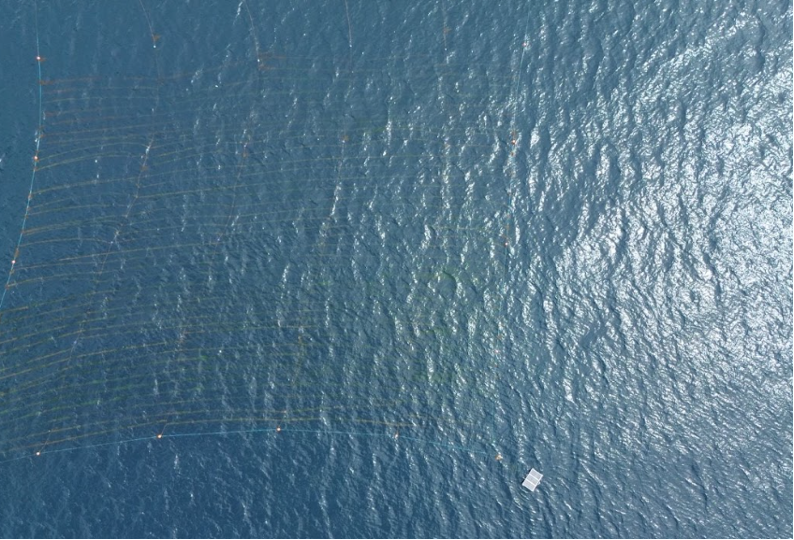

On September 26, 2025, members of the project “Participatory Approach in Assessing and Promoting Women-led Permaculture among Selected Permaculture Sites in the Agriculture, Aquatic, and Natural Resources (AANR) Sectors in the Philippines” conducted a scoping visit and drone mapping activity at the Climate Foundation Station in Compostela, Cebu.
The activity aimed to deepen the team’s understanding of marine permaculture and seaweed production, both of which play an important role in sustainable coastal resource management and blue economy initiatives.
Representing the project during the visit were aProf. Maria Lourdes Jarabe, Dr. Jabez Joshua Flores, Raizza Anna Alforja, Tiffany Leanne Catbagan, and Nestor Campaner. The team was introduced to the operations and innovations of the Climate Foundation, gaining valuable insights into how marine permaculture systems function and contribute to ecological restoration and community livelihoods.


The Climate Foundation is a nonprofit organization dedicated to reversing global warming and preserving biodiversity by leveraging innovative and nature-based solutions. Its work in marine permaculture demonstrates how regenerative ocean farming can contribute to both climate action and local economic resilience.
As marine permaculture remains relatively new and not widely practiced in the Philippines, the experience offered the team a unique and special opportunity to explore its potential applications. The visit also highlighted the circular economy principles embedded in seaweed production, particularly in how by-products are transformed into value-added goods.


One of the key learnings from the visit was how the Climate Foundation developed BIGrow, a biostimulant derived from seaweed, which demonstrates the potential of marine permaculture to create sustainable, high-value products that benefit both the environment and local communities.
The scoping visit provided the project team with fresh perspectives on integrating marine-based permaculture concepts into broader discussions of sustainability, gender inclusivity, and innovation within the AANR sectors.
This project aims to contribute to the fulfillment of:
- SDG 4: Quality Education
- SDG 5: Gender Equality
- SDG 10: Reduced Inequalities
- SDG 11: Sustainable Cities and Communities
- SDG 13: Climate Change
- SDG 17: Partnerships
Written by: Tiffany Leanne Catbagan • Edited by: Larry N. Cruz
Sustainable Development Goals

















FMDS Socials